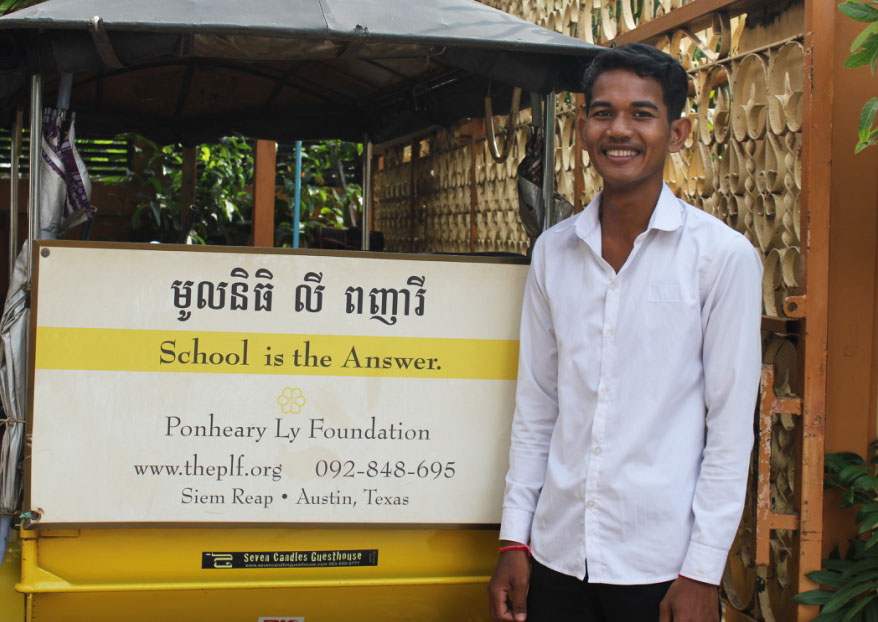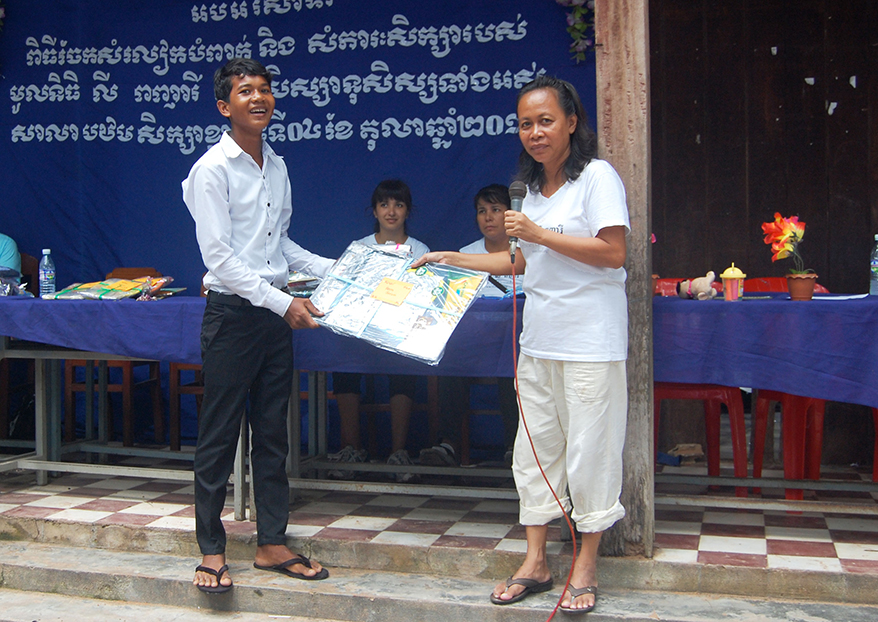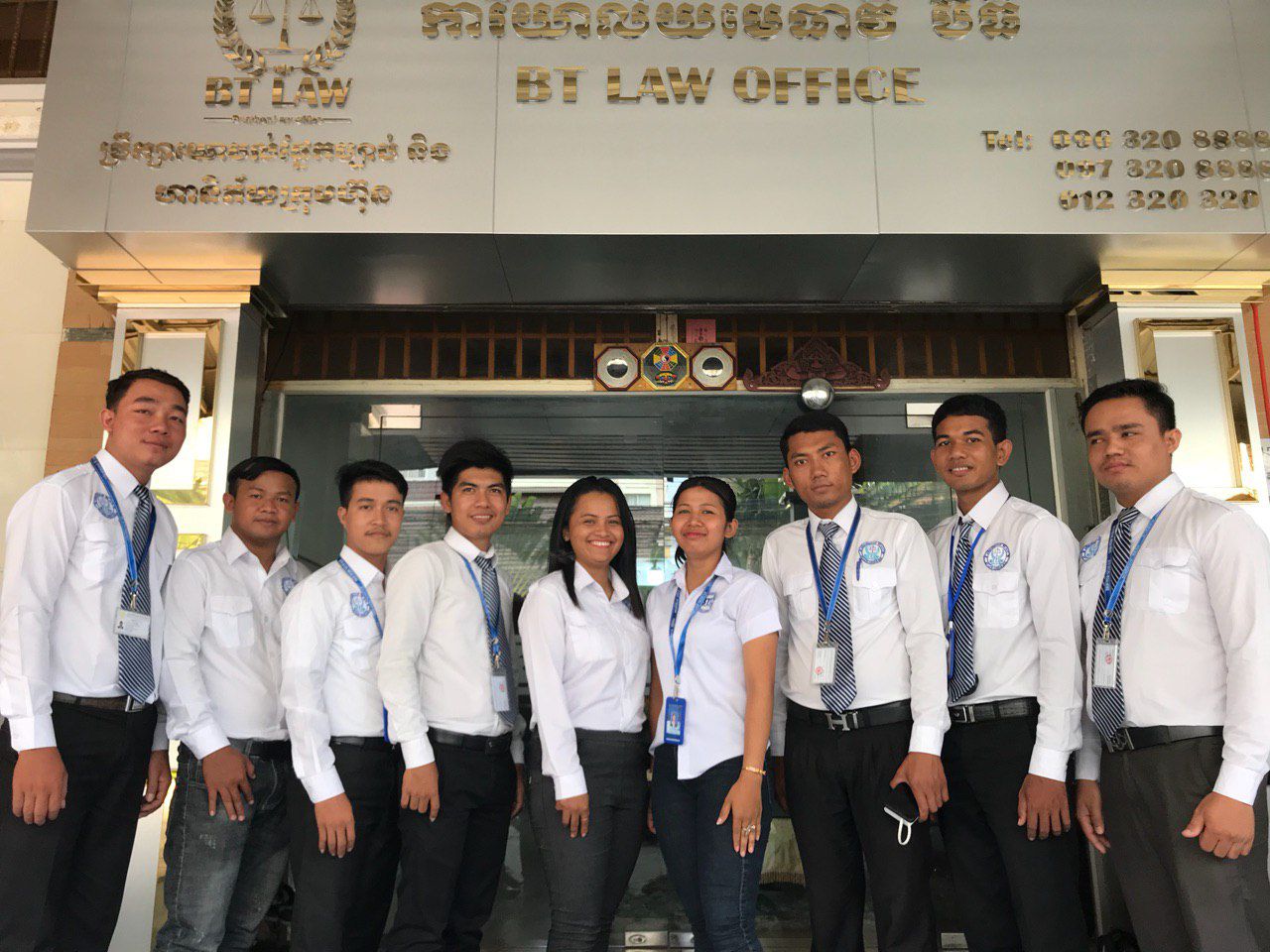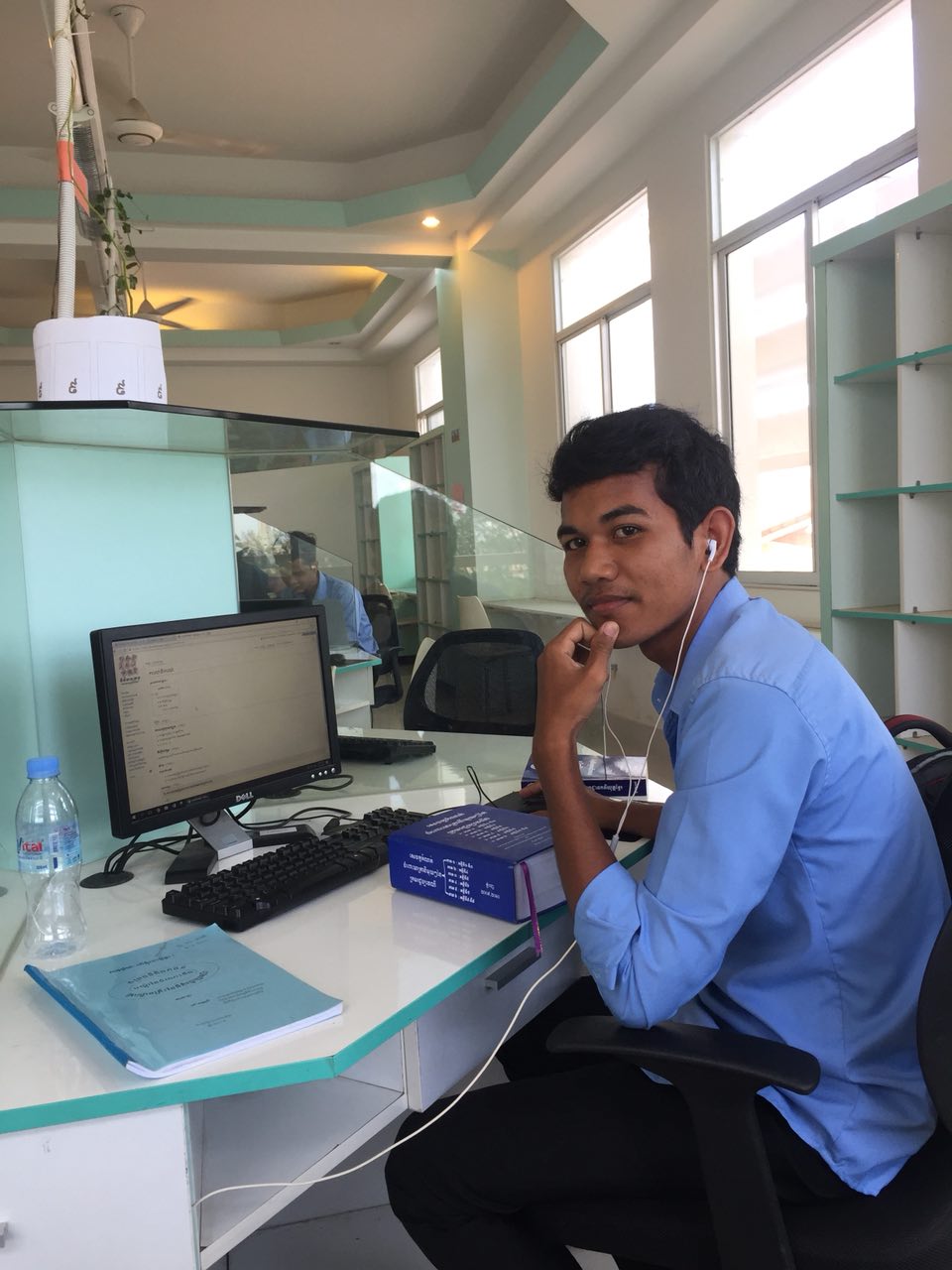About Student Chats:
We know how inspiring our Students are and we thought it was about time you, our friends and donors, could get to know them for yourselves. Throughout this series, you will hear directly from the students about their lives, their struggles, their dreams, and passions.
Sororn
3rd year Royal University of Law and Economics
Tell us about your experience from when you were young until you came to study in Phnom Penh.
At first, I studying in primary school at Knar primary school. PLF helped me to study at that time, since I was in Grade 2. Then I went to study at Khnar Sanday Secondary School for three years, and after that, I received a high school scholarship from PLF.* After I graduated from Grade 9 I went to study at Banteay Srey High School for two years in Grades 10 and 11. I received a scholarship during that time that allowed me to study in extra classes as well. For two years it was like that. After finishing Grade 11, I moved to Siem Reap to study in Grade 12 for my last year of High School. I wanted to change my studies from the countryside school and find out about the quality of education in Siem Reap. I wanted to know, was it any different? Grade 12 is an important year because It’s the last year before University and the last chance to get strong scores. I wanted to improve myself at the high school in the city, and I wanted to live in the PLF dormitory in Siem Reap.
I lived at the boys dorm for one year, and through that scholarship I was able to study computer, extra classes, English, and join other educational events

When you began living at the dorm in Siem Reap, how did you feel?
Siem Reap is really different from the countryside because in the countryside most students aren’t really interested in school. Most students in the countryside go to class, go to work, and then have chores to do at home. They don’t really have the opportunity to focus on their studies and many of them end up dropping out. In the city, people put a high value on education. Some people are still working on the side but they keep focus on their studies and manage both. Also in the city, there are a lot more schools than where I come from. In the countryside there is usually only one high school in each district, so the students have to travel very far. Like me, when I was in Grade 10 and 11 I had to ride my bike ten kilometers each way to study. Twenty kilometers in one day, six days a week. It was a lot. When I moved to the city, the school was so close. It only took me 10-15 minutes to get to school.
Is the PLF scholarship important for you?
For me, yes. I think it is important. In my generation, there are others who weren’t able to get a scholarship to come to study in Phnom Penh. Most of the students in my Grade 12 class stopped when they completed the national exam, they didn’t have the ability to continue their studies. We are the lucky ones, those of us were selected. We are the ones who were chosen to study in University. I wouldn’t be able to be here without this scholarship. This scholarship is the thing that made it possible for me to continue my studies and find out about what studying in Phnom Penh would be like.
What are the positives and negatives about the PLF scholarship? The good thing is that every year is paid for, not only the first year. The scholarship is for the full degree. It’s also great that we get a stipend, and that the foundation takes care of us and checks in on our studies. They don’t send us here and throw us away. Some other scholarships, they help you to study and then they don’t take care of anything else. But not PLF, they are always checking in on me and helping me to find the way to continue my studies. Sometimes I get stuck and I still need advice or help from PLF and they are always there to help me find the solution to my problems.
And the negatives?
Of course, there are some negatives, but for me they are small. At first, it was a challenge for me to get to know the city and make new friends because there is no PLF office here. It took me some time to learn to budget my money and explore the city outside of my room and my university.

What are some points you wish you had developed more about yourself before you came to Phnom Penh?
When I studied in my village I had only one job. Climb the mountains and collect the firewood. I had to do this work every single today. I studied in the morning and came home in the afternoon to work. On Sundays when we didn’t have class I worked all day. I worked every day until I came to study in Siem Reap, then I could finally focus on my studies. In Phnom Penh I didn’t have a job for a long time. My first year I didn’t work because I had class from morning until night. In my second year, I started studying in the evening so I could work part-time in the mornings and I got a part-time job at a hotel for five months. But I quickly saw that working at a hotel in the morning and studying law in the evening were separate skills, not related to each other. My scores in school started to drop so I decided to stop working at the hotel. Now I’m working part-time as a journalist’s assistant for four hours every morning.
Why did you choose to study law?
I chose to study law because – everyone always asks me this (he says with a smile) – it’s an easy question to ask but sometimes difficult to answer. I like to help others. I have always liked to help others since I was young, and I will be happy as long as I am doing just that. I don’t want to forget this. I think that by studying law, I can help support people who meet problems and injustice and can’t find the help they need.
I will help them as best as I can. I decided to study law so that I can help the people I love like my siblings, my family, the people in my community, the people in my country. For anyone who wants to help others, it doesn’t matter what your degree choose as long as you can meet that goal. So this is why I chose to study law.
What do you want to do when you graduate?
My dream is to become a judge. A judge is someone who is fair and cannot be controlled. Someone who can see justice and injustice and decide the difference between the two. They can see the truth clearly. They see both sides because they are someone who stands in the middle and makes the decision.

Do you have any role models or were there people who inspired you to reach where you are now?
Yes. The first is my family. They always try to encourage me in my studies, especially my mom. When I was absent or when I took a break from my studies for a day she always yelled at me. She always told me that she has only one piece of knowledge to give me: If you don’t reach your goals, who will? She told me that she doesn’t want to see me live with her forever. She will get old one day and can’t support us. My Dad always said the same. They studied until Grade 2 or 3, I’m not sure. Both of them are farmers. They weren’t lucky like me.
The other important one is PLF. No matter where I was studying, PLF has always checked in on me and stayed with me and tried to help me find the way that is right for me. They always encourage me to study. Sometimes I feel like I will give up, I feel homesick, I feel sick, I miss my family. But PLF always pushes me to stay strong and not give up.
Do you have any words of advice to others?
My advice is to younger students who are studying in high school or thinking about their future education – we need to be constantly developing ourselves. You must ask yourself – right now, what are you studying, what is the value of your education, what are you doing? Don’t run away from your problems. It’s not going to help you. We already know that everyone will meet challenges in their life, people will blame you or call you bad names in your studies or in your work. But you must try to do whatever you can to stay positive. When you face a small problem, let it go.

If you could say something to the world, what would it be?
If I could share anything with the world, I think that all nationalities are human. We should try to live as humans all together in peace. Even though we come from different countries, we are from the same world. We need peace. We should do whatever we can to keep peace in the world. Live the way that can bring benefit to the world.
To read more about our university scholarship program, click here!

Recent Comments